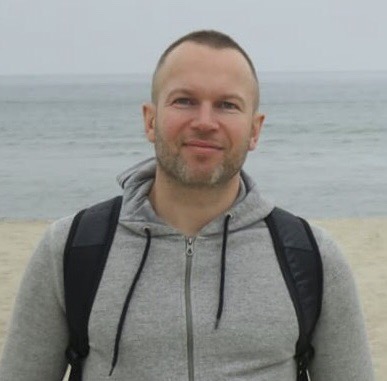Swiss National Day: Which language has been their best at Eurovision?
- Guy Hornsey

- Aug 1, 2020
- 3 min read

Today is Swiss National Day, a holiday in Switzerland marking the date on which the oath of confederation was sworn by three Alpine cantons in 1291 and now regarded as the country's "birthday". It’s been an official holiday since 1994 and is celebrated with paper lantern parades, bonfires and fireworks.
Here at Aussievision, we've taken a look at the four main languages in which Swiss artists have performed at Eurovision and how that choice has impacted the nation's results. As a reminder, the country has four official languages: French, German, Italian and Romansh.
Switzerland has performed in Romansh only once, when Furbaz took to the Eurovision stage with ‘Viver senza tei’ in 1989 and finished in 13th place. Apart from that occasion, all Swiss performances have been in German, French, Italian, English or a combination of those languages.
We’ve looked at all the country's results over the years and worked out which language has proved (on average) to be the most successful. Here's a summary of the four languages used, ranked from least to most successful.
4. Italian
Average ranking: 13.2
Number of times used: 10
Wins: 0
Times in the Top 10: 3 (30%)
Switzerland has entered ten songs in Italian, a choice that has delivered the country its least successful results. The best position achieved has been a 4th place in 1981 when Peter, Sue and Marc performed ‘Io senza te’. The worst result was a 22nd place (out of 25 competing countries) when Barbara Berta sang ‘Dentro di me’ in 1997.
3. English
Average ranking: 11.6
Number of times used: 15
Wins: 0
Times in the Top 10: 3 (20%)
Despite not delivering the best results, there has been a trend in recent years for artists representing Switzerland to sing in English. If you thought it had been a while since you had heard Switzerland enter a song in one of its official languages when you heard Gjon’s Tears this year, well you were right – it was the first non-English song for 10 years. Over those ten years, the country has qualified only three times.
The highest positions attained by a song in English to date have been the 4th place achieved by Peter, Sue and Marc (again!) in 1976 with ‘Djambo, Djambo’, which was matched in 2019 by Luca Hänni's ‘She Got Me’. On the downside, Switzerland came last in 2011 with ‘In Love For a While’, performed by Anna Rossinelli.
2. German
Average ranking: 11.5
Number of times used: 9
Wins: 0
Times in the Top 10: 4 (44%)
Sneaking into second place by just a whisker, German has been Switzerland's second most successful language. Whilst only 0.1 points ahead of English in the average ranking, songs in German have been over twice as likely to make the Top 10 than English-language entries. The best position achieved thus far has been the 4th place result in 1959 when Christa Williams performed ‘Irgendwoher’. By contrast, Switzerland's worst result was in 1998 when Gunvor came last with ‘Lass Ihn’.
N.B.: at the inaugural Eurovision Song Contest in 1956, each competing country performed two songs and one of Switzerland’s entries ('Das Alte Karussell') was sung in German. This song is not included in the rankings average as that year's points were never revealed; only the winner was announced.
1. French
Average ranking: 8.3
Number of times used: 24
Wins: 2
Times in the Top 10: 15 (60%)
Emerging as the most successful language, it is French that has secured Switzerland its two wins and fifteen Top 10 positions. Céline Dion famously triumphed in 1988 with ‘Ne partez pas sans moi’ and Lys Assia was the contest's very first winner in 1956 with ‘Refrain’. Switzerland's worst result with a French-language song came in 2002 when Francine Jordi ultimately placed 22nd (out of 25) with ‘Dans le jardin de mon âme’.
So, there we have it: the use of French has seen Switzerland achieve some great results over the years, and ‘Répondez-moi’ was indeed proving popular with fans before the contest's cancellation this year. We'll now just have to wait and see whether Gjon’s Tears will be back with a fresh new French song in 2021 or whether he will opt to sing in a different language. Perhaps (at least partly) in a new language for Switzerland, such as Albanian?



google 优化 seo技术+jingcheng-seo.com+秒收录;
Fortune Tiger Fortune Tiger;
Fortune Tiger Fortune Tiger;
Fortune Tiger Fortune Tiger;
Fortune Tiger Slots Fortune…
站群/ 站群
gamesimes gamesimes;
03topgame 03topgame
EPS Machine EPS Cutting…
EPS Machine EPS and…
EPP Machine EPP Shape…
Fortune Tiger Fortune Tiger;
EPS Machine EPS and…
betwin betwin;
777 777;
slots slots;
Fortune Tiger Fortune Tiger;
google seo…
03topgame 03topgame;
gamesimes gamesimes;
Fortune Tiger…
Fortune Tiger…
Fortune Tiger…
EPS Machine…
EPS Machine…
seo seo;
betwin betwin;
777 777;
slots slots;
Fortune Tiger…
seo优化 SEO优化;
bet bet;
google seo…
Fortune Tiger…
Fortune Tiger…
Fortune Tiger…
Android Android
software software
Q&A Q&A
Notícias Notícias
sitemap sitemap;
sitemap sitemap;
谷歌seo推广 游戏出海seo,引流,快排,蜘蛛池租售;
Fortune Tiger Fortune Tiger;
Fortune Tiger Fortune Tiger;
Fortune Tiger Fortune Tiger;
Fortune Tiger Fortune Tiger;
Fortune Tiger Slots Fortune Tiger Slots;
谷歌seo优化 谷歌SEO优化;
Fortune Tiger Fortune Tiger;
Fortune Tiger Fortune Tiger;
Fortune Tiger Slots Fortune…
Fortune Tiger Fortune Tiger;
Fortune Tiger Fortune Tiger;
Fortune Tiger Slots Fortune…
EPS машины EPS машины;
ETPU машины ETPU машины;
EPP машины EPP машины;